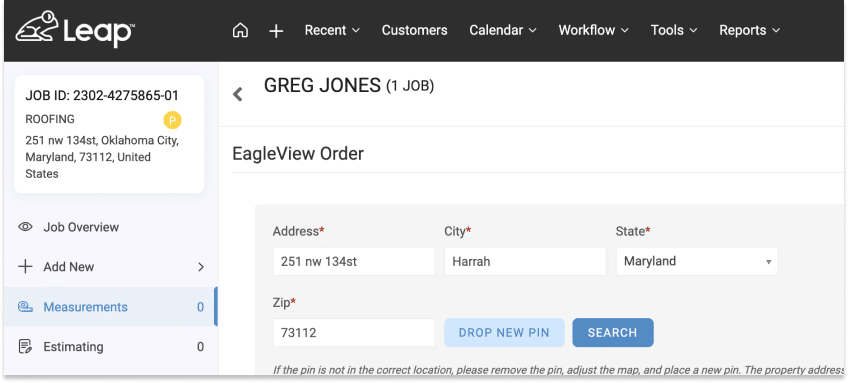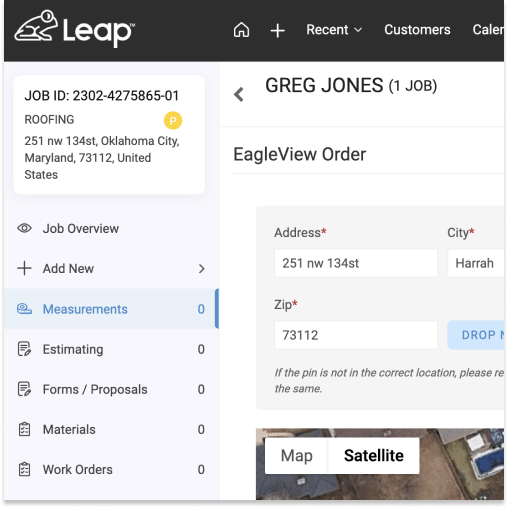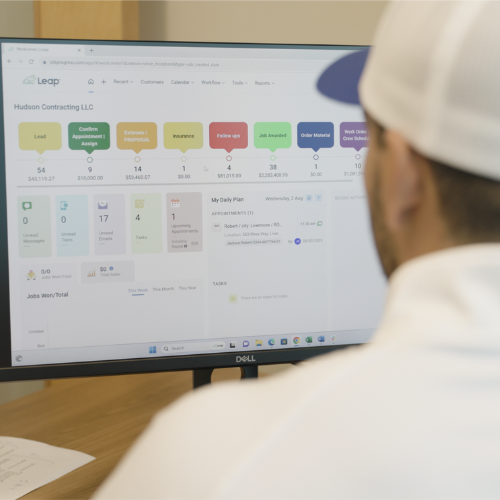Home Improvement contractors often juggle multiple tasks and projects, from ensuring quality workmanship to customer satisfaction. To maintain a competitive edge and deliver top-notch service, contractors need efficient tools that streamline their workflows. This is where contractor software integrations come into play.
It’s the vital bridge between various systems and processes that can sometimes become a logistical nightmare. In this article, we will explore the importance of software integrations and dive into the types of integrations that are most beneficial for home improvement contractors.

Why You Need Contractor Software Integrations
When it comes to managing home improvement projects, a CRM system is invaluable. It helps contractors organize their customer information, track project details, and streamline communication. However, the real power of CRM software is unleashed when it integrates seamlessly with other systems and tools.
Integrating CRM software with other applications and platforms can significantly enhance a contractor’s efficiency. Moreover, it ensures that important data is not scattered across various systems.
This reduces the chances of errors and missed opportunities. In addition, this not only saves time but also increases productivity and, ultimately, profitability.
Contractor software integrations can establish a centralized hub for customer information, project management, and communication. This enables contractors to provide homeowners with a seamless and professional experience. Furthermore, it sets their business apart from the competition.
Best Integrations for Home Improvement Contractors
Contractors rely on various tools and technologies to manage different aspects of their business. To optimize their operations, they should consider a CRM that integrates with specific types of tools, such as:
- Imaging technology
- Measurement tools
- Manufacturing
- Financing and payments
- Sales and marketing
These types of tools give your business a full stack of technology to enhance your operations. Therefore, let’s dig a bit deeper into the impact they can have as you continue to grow.
Imaging Technology
Home improvement contractors often deal with visual elements of their projects. This is especially true for roofers and remodelers. Therefore, integrating imaging technology can be a game-changer in this field.
The integration of imaging tools like drones, 3D modeling software, and photo documentation can provide contractors with detailed visual records of their projects. This can be particularly useful for before-and-after comparisons, customer presentations, and project documentation.
By linking these images and visual data with their CRM system, contractors can maintain an organized archive of project history for future references and quality assurance. You can’t go wrong with industry specific technology such as CompanyCam.
Measurement Tools
Accurate measurements are the backbone of any home improvement project. From dimensions to material calculations, getting it right is crucial. And contractor software integrations such as measurement tools can save contractors time and reduce the risk of errors.
One prime example is the integration of measurement software like EagleView. This allows contractors to input measurements directly into the CRM platform, creating a comprehensive project profile. Furthermore, these measurements are easily accessible for the entire team, reducing the chances of discrepancies or misunderstandings.
Integrating measurement tools can lead to more accurate project cost estimations. Overall, this ensures contractors can provide customers with precise quotes. It also minimizes unexpected expenses down the road. The result? Satisfied customers and more business opportunities.
Manufacturing Tools
Dealing with custom components and materials is always a part of a contractor’s daily workflow. Therefore, contractor software integrations with manufacturers can be a game-changer for anyone looking to streamline their operations.
By connecting with manufacturers, contractors can optimize their production processes to ensure timely and efficient delivery of materials and components. This also allows for real-time tracking of material ordering, reducing the chances of project delays due to shortages.
Additionally, these tools can improve inventory management. Contractors can maintain an accurate record of materials in stock, order new supplies as needed, and minimize waste. Ultimately, it’s another road to saving time and money.
Financing and Payment Tools
Financing is a significant aspect of the home improvement industry. In fact, the cost of renovations, remodels, and replacements can be overwhelming for homeowners in today’s economy. Integrating financing and payment tools is essential for contractors who want to offer flexible payment options to their customers.
Some CRM platforms can connect with financial software, making it easy to generate quotes with different payment plans. Additionally, contractors can better manage their financial data.
This streamlines invoicing, payment tracking, and the overall financial health of the business. It also enables contractors to offer financing options more easily, potentially increasing sales. There’s a long list of financing and payment tools that are perfect for the home improvement industry, such as GreenSky and PowerPay.
Sales and Marketing
Contractors need to have a strong online presence and marketing strategy. Integrating CRM software with sales and marketing tools can help contractors manage their customer relationships, leads, and marketing campaigns more effectively.
Additionally, integrating CRM with sales tools can provide contractors with valuable insights into the sales process. With SalesPro, they can track all communications, analyze customer behavior, and adjust their sales strategies accordingly. This not only saves time and resources but also improves the chances of closing deals and securing long-term relationships with homeowners.
Overcoming Challenges with Integrations
While contractor software integrations offer numerous benefits, they come with their fair share of challenges. It’s important for contractors to be aware of these potential hurdles and to plan accordingly:
- Compatibility: Not all software applications are designed to work seamlessly together. Contractors must choose CRM software and integration tools that are compatible with their existing systems and platforms.
- Cost: Integrating software may require an initial investment. Contractors should consider the long-term benefits and weigh them against the integration costs.
- Training and Adoption: Team members need to be trained to use the software effectively. Leadership must invest time in ensuring their team is comfortable with the new tools.
- Data Security: Data security is a paramount concern when integrating software. Contractors should take steps to protect sensitive information and maintain data privacy.
- Ongoing Support: Regular updates and maintenance are necessary to keep systems running smoothly. Contractors should have a plan for ongoing support and maintenance.
As it goes with most businesses, consistently improving and adjusting is necessary for your systems to work properly. And while technology can transform the way you do business, it’s also prone to breakdown if you aren’t regularly updating your software and training your team. The more focus you put into these areas, the less errors and mishaps will occur.
Industry-Leading Integrations with Leap
Leap takes pride in providing partner integrations with some of the industry’s best tools and software solutions. In fact, Leap does the heavy lifting for your business in lead management, project management, and workflow automation. And with our integration capabilities, you can quickly connect your current systems to create a flow of information unlike anyone else in the industry.
In the ever-evolving world of home improvement, contractors must adapt to new technologies and tools to stay competitive. Contractor software integrations are a valuable resource that can help streamline operations, enhance efficiency, and provide a seamless experience for customers.
To learn if Leap is the right fit for your business, fill out the form below and schedule a personalized demo. Discover if Leap provides the integrations you need to win more jobs and scale your business!
"*" indicates required fields




